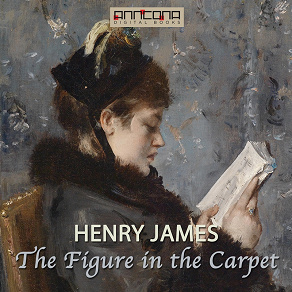
Förlag: Anncona Media
Kategori:
Romaner Noveller Engelskspråkiga
Tillgänglig sedan: juli 2016
Uppläsare: Nicholas Clifford
Length: 1 timme 36 minuter
The Figure in the Carpet
The Figure in the Carpet is a novella published in 1896 in London, by Henry James.
The story is told in the first person. The narrator, whose name is never revealed, meets his favorite author and becomes obsessed with discovering the secret meaning or intention within all the author's works.
Heretofore, The Figure in the Carpet has evaded definitive interpretation. In his book Henry James (1913), Ford Maddox Ford wrote that after the nouvelle was published, James’ contemporaries had set themselves on a quest to locate the Figure as an identifiable physical entity. In the preface to his Choice of Kipling’s Verse (1941), T.S. Eliot wrote, “Nowadays, we all look for the Figure in the Carpet.” Absent a definitive interpretation, it opened new possibilities for the study of ambiguity in literature.
The story ostensibly concerns a young literary critics who greatly admires the writer Hugh Vereker. A meeting with Vereker, however, shows him that he – and all other critics – have in fact missed the great point of Vereker's work, and the critic (and his editor) thereupon devote themselves to trying to unravel the mystery.
James's story, however, almost certainly has an autobiographical side to it, perhaps itself criticizing those critics who couldn't see, or wouldn't see, the figures lost in the carpet of his own writing.
Total Running Time (TRT): 1h, 39min.
Henry James, OM (Order of Merit) (1843-1916) was an American-born writer, regarded as one of the key figures of 19th-century literary realism.
He is best known for a number of novels showing Americans encountering Europe and Europeans. His method of writing from a character's point of view allowed him to explore issues related to consciousness and perception, and his style in later works has been compared to impressionist painting. His imaginative use of point of view, interior monologue and unreliable narrators brought a new depth to narrative fiction.
Henry James was nominated for the Nobel Prize in Literature in 1911, 1912, and 1916.
Provlyssna
Information
Stöds av följande plattformar
PC/Mac
Smartphone
